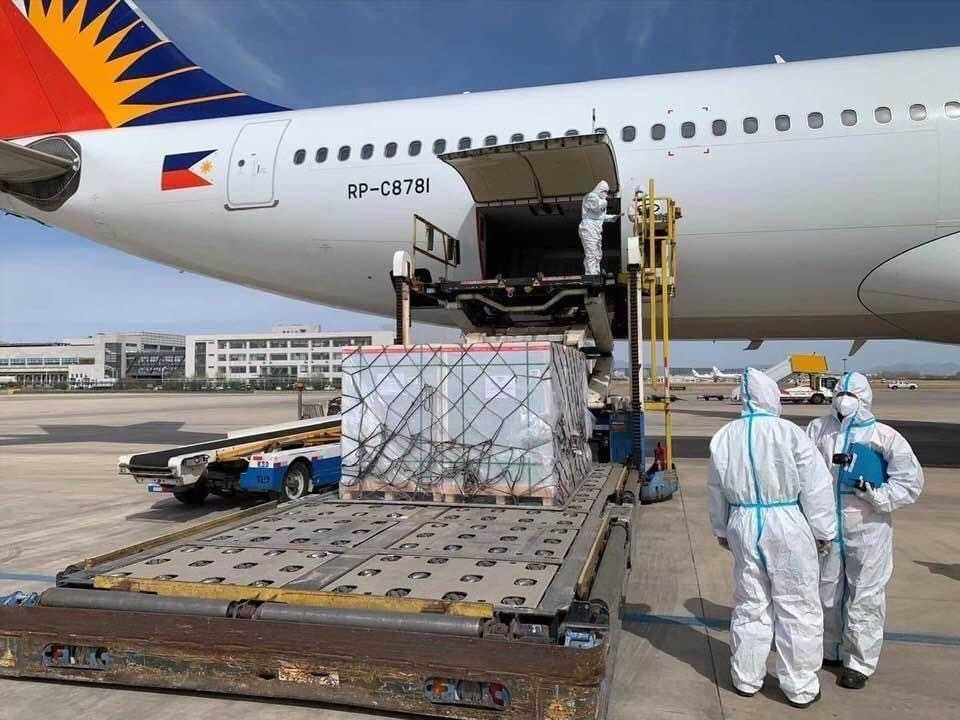Procurement law seen to slow vaccine importation by private firms despite Duterte order

MANILA, Philippines — (Updated 3:21 p.m.) Despite President Rodrigo Duterte's recent decision to allow private firms to import COVID-19 vaccines themselves, the existing requirement to enter into tripartite deals with the national government will likely continue to slow the acquisition of the badly-needed jabs, senators warned Tuesday.
Duterte during a televised address said he ordered vaccine czar Galvez to "sign any document that will allow private sector to import [vaccines] at will."
But Sen. Joel Villanueva told Philstar.com that any attempt to purchase vaccines outside of a tripartite agreement would only spell added expense for private firms.
"[B]ecause procurement must be tripartite in accordance with vaccination law we passed, any agreement outside tripartite means indemnification clause in the law won't apply, and that's additional cost for private sector because they'll need to buy insurance," he said.
Meanwhile, Sen. Panfilo Lacson, who praised the directive from Duterte, said the "next challenge... is compliance to his instructions by the concerned health authorities."
He flagged in specific the time it would take for the concerned authorities to approve private firms' applications to import vaccines and enter into tripartite deals with manufacturers as required by the COVID-19 Vaccination Program Act.
"Then there’s the availability of vaccines in the world market, not to mention the time lag between booking and actual deliveries of the vaccines," Lacson added.
"Had the order been issued at the time when the private sector was clamoring to be allowed to procure their own vaccines...by now the country would likely have been vaccinating en masse and nearing herd immunity, thanks in large part to the private sector," he added.
Drilon: Duterte received wrong advice from IATF
Meanwhile, Senate Minority Leader Franklin Drilon said the confusing policies on vaccine procurement "indicate the lack of planning" from the coronavirus task force.
He also criticized the inter-agency body for incorrectly advising the president.
"We have ordered [vaccines] late because of wrong advice to the president. He was advised that we cannot make an advanced payment because the law prohibited it," Drilon said.
"The fact is, in emergency purchase, the law allowed the president to advance the purchase. The failure to advance the purchase price resulted in us being last in the queue."
Duterte last night said the procurement of COVID-19 vaccines hit a snag due to tight supply.
"As we said, unfortunately, we follow in the IATF’s command and control," Drilon said during an interview with ANC's "Headstart."
"Maybe we need more scientists and the science-based decisions to influence the kind of thinking in the IATF."
A week before Duterte ordered that private firms be allowed to purchase vaccines "at will," the health department confirmed the existence of a draft order that would bar infant milk manufacturers, sugary beverage makers, and other private firms from procuring COVID-19 vaccines for their workers.
Senators slammed the proposed directive as illegal and unauthorized and warned that it exposed officials to criminal charges.
IATF members again scramble to clarify Duterte's remarks
During a briefing aired over state-run PTV, two members of the coronavirus task force sought to clarify Duterte's promises, indicating little to no change in the private sector's role in vaccine procurement.
Galvez said in Filipino that Duterte's directive is "to speed up the process so that we do not perceive that we control our procurement."
Roque during the same briefing said that importation will still be done through tripartite agreements as the vaccines are covered by emergency use authorization.
Going by their comments, it seems the president's pronouncement will mean little to no change to guidelines already issued by Malacañang last week.
Senate Majority Leader Juan Miguel Zubiri, while praising Duterte's order, urged the coronavirus task force "to immediately come out with guidelines to facilitate" it.
Gov't urged: Expedite processing of tripartite agreements
Villanueva further urged the government to encourage more firms to buy vaccines by expediting the processing of trpartite agreements.
For the senator, all requests from private firms to acquire vaccines should be treated as offers that are "about to expire."
"Private sector has the money and the DOH-NTF’s only equity is to speedily approve the tripartite agreement. Let's not put private sector requests in 14-day quarantine," he told Philstar.com partially in Filipino.
"By injecting their workers with vaccines to protect them from the virus and save their lives, the private sector is also injecting life into the economy," Villanueva added. "Because of all kinds of economic stimulus, the best is still the vaccine."
Meanwhile, Sen. Risa Hontiveros said the government should implement the following guidelines for private sector-procured and administered vaccines:
- purchasing private entities must have the capacity to provide post-vaccine care
- there must be no maldistribution of vaccines and that even MSMEs will be enabled to have access
- private sector procurement must not affect the national-led vaccination program of the government
- vaccines must be provided free to workers
- Latest
- Trending





























